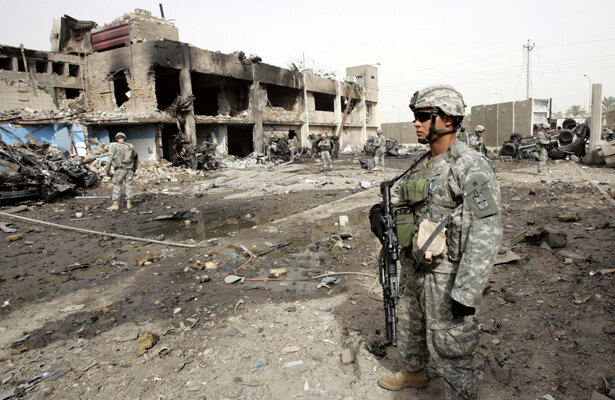The U.S. invaded Afghanistan under the still unproven pretext that the Taliban was responsible for harboring Al Qaeda members responsible for the 9/11 tragedy. After two-decades of conflict, Taliban forces have retaken Kabul. Many in the United States and the West took to social media to lament the defeat.
By Danny Haiphong
This included former 2020 U.S. presidential candidate Marianne Williamson who is known in U.S. political circles as an outspoken critic of both the Democratic and Republican parties. However, her response to the fallout in Afghanistan mirrored that of the U.S. political establishment.
Williamson decried the inadequacy of the U.S. withdrawal and called upon progressive politicians and political analysts to advocate for the U.S. to stay in Afghanistan until a sufficient number of people, especially women, were rescued from the country.
Williamson and countless other U.S. analysts have chosen to ignore the role of the United States in the devastation wrought by war. Violence in Afghanistan was commonplace prior to the current political transition. More than 200,000 people living in Afghanistan have died since the war began in 2001. Over this period, the people of Afghanistan have also seen their economic conditions worsen. The annual unemployment rate is above 10 percent. Per capita GDP is under $600, with three out of four people suffering from food insecurity.
While Williamson demanded that the U.S. do its part to protect women in Afghanistan, conditions for women have declined drastically since the U.S. war began in 2001. Two-thirds of girls in Afghanistan do not attend school. An even higher number of women are illiterate. As much as 80 percent of all suicides in Afghanistan are committed by women. It is clear that U.S. intervention was never the answer for the problems faced by women in Afghanistan.
In fact, human rights issues are frequently exploited by the U.S. to manufacture consent for military objectives. The U.S.’s paradigm of endless war assumes that Washington is the world’s champion of human rights. This cloaks the U.S.’s hegemonic ambitions behind the veil of “good intentions.” Human rights have thus become a crutch for an ideology of domination which is both racist and militarist in character.
The truth is that human rights have been trampled on wherever the U.S. has intervened militarily, Afghanistan being one example of many. The U.S. has attempted the overthrow of more than 50 foreign governments since 1945. These military operations have led to the death of at least 30 million people as of 2011.
The U.S. military invasion of Iraq in 2003 led to more than a million casualties over an eight-year period. Prior to the full-scale intervention, U.S. sanctions had killed more than a half million children in Iraq according to UN estimates.
Mass casualties are just one consequence of U.S. wars. As the situation in Afghanistan attests, U.S. wars also generate economic, social and environmental instability. U.S. sanctions not only cause unnecessary deaths but also massively increase poverty by restricting market access.
For example, in Syria, where U.S. military forces occupy one-third of the country, prices for all goods have risen dramatically due to U.S. sanctions. War also causes great damage to the ecology of the planet. If the U.S. military were a country, then it would be the 47th largest polluter in the world.
The U.S.’s policy of endless war has lost significant legitimacy globally, with the debacle in Afghanistan playing a significant role. Polls indicate that people all over the world find the United States to be the greatest threat to world peace.
China along with its partner Russia have offered an alternative vision for governing world affairs: multipolarity. Multipolarity provides a framework for countries both large and small to participate in the resolution of global problems with proper respect given to international law.
No matter how much the U.S. demonizes China and Russia, multipolarity has only grown more popular around the world. This is evidenced by the growth of multilateral institutions such as the Asia Infrastructure Investment Bank, Shanghai Cooperation Organization and the Group of Friends in Defense of the UN Charter. Furthermore, China’s Belt and Road Initiative offers developing countries economic opportunities not provided by the U.S.’s emphasis on militarism and regional destabilization.
The drawdown of the U.S.’s endless war in Afghanistan serves as a reminder that militarism has enormous consequences that only peace can resolve. Most of the world is weary of war. Nations deserve the right to self-determination and sovereign development. Such a right is protected under the UN Charter. Unfortunately, this is a right that the U.S. has yet to respect with regard to Afghanistan or elsewhere.
Editor’s note: Danny Haiphong is an independent journalist and researcher in the United States. He is a contributing editor to the Black Agenda Report, co-editor of Friends of Socialist China, and founding member of the No Cold War international campaign. The article reflects the author’s opinions and not necessarily the views of CGTN.






